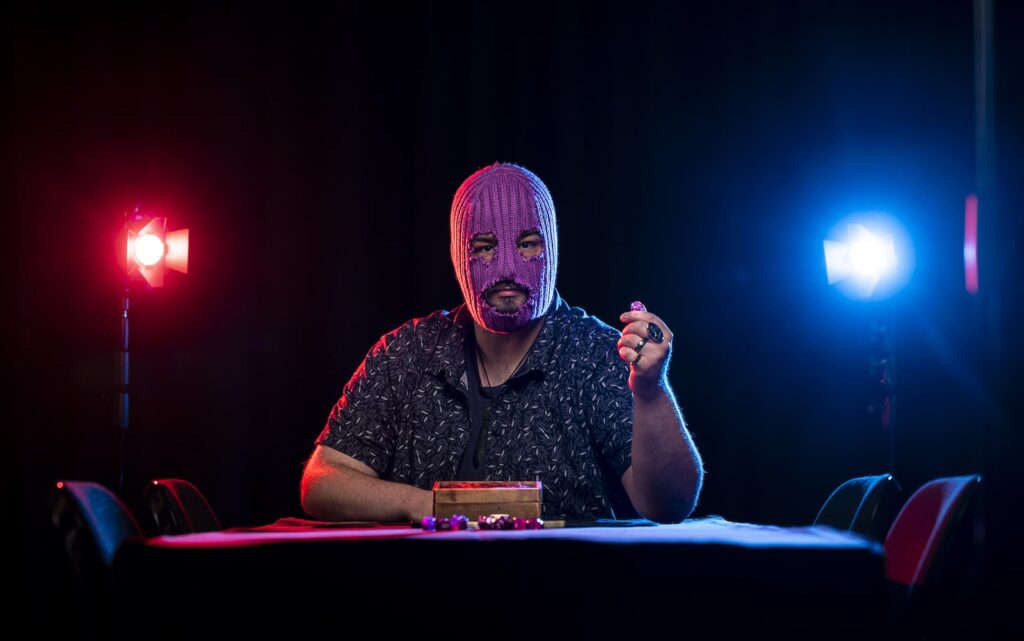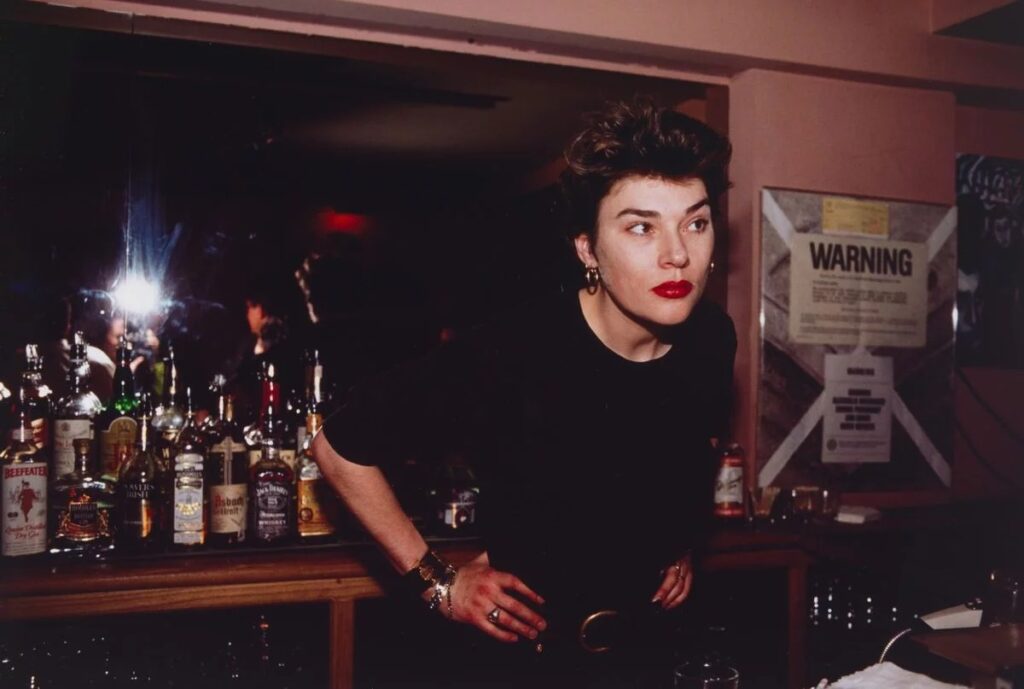Fire In Babylon
In the late 60’s, the West Indies cricket team was regarded as something of a joke, and their pathetic on field performances were greeted with the derogatory term “Calypso Cricket.” They also had to deal with prejudice and racist taunts on the sporting field. The team reached a low point in the 1975 Test tour of Australia when they were comprehensively thrashed. Determined to turn their image around captain Clive Lloyd began to rebuild the team. By the end of the 70’s the West Indies had become virtually invincible, and for fifteen years they dominated the sport like no other team, remaining unbeaten in Test matches during that period. Fire In Babylon is a real story of the triumph of an underdog against the odds. It places the rise of the West Indies team against a broader social, cultural and political background – South Africa was in the grip of the brutal apartheid regime, England suffered race riots, and the Caribbean itself was scarred by civil unrest.
The documentary looks at the civil rights movement, the country’s drive to seek independence and shake of its colonial roots, the move towards freedom, unity, and pride, and how the achievements of the cricket team on the field reflected this turbulent period of social change. The film also looks at the development of Kerry Packer’s World Series Cricket and how it forever changed the face of cricket. Writer/director Stevan Riley (Blue Blood, etc) obviously has a passion for sports-based documentaries. Here he draws upon a wealth of deftly edited archival material; and there is plenty of cricket action, especially in the marvellous footage of their fast bowlers besieging the opposition batsmen. There are also interviews with a number of famous figures including Viv Richards, Clive Lloyd and fast bowler Michael Harding, who talk candidly about the resurgence of the West Indies team. And there is a reggae-flavoured soundtrack too! Even if you do not particularly like cricket, this is a fascinating, revealing and accessible documentary.
The Liverpool Goalie
This absolutely charming and thoroughly entertaining coming of age tale from Norway explores such universal themes as friendship, honesty, family, puberty, bullying, confronting your fears and, of course, football. Jo (Ask van der Hagen) is a bright boy, but since the death of his father in an unfortunate accident he is very fearful. He would love to be on the soccer team, but his overprotective mother worries about injuries. He also is fond of Mari, the bright new girl in school, but cannot work up the courage to approach her. And he is also being bullied at school by the nasty Tom Erik, who forces him to do his homework, and is afraid to stand up for himself.
As Jo is confronted by decisions, he works through the various consequences in some wonderfully amusing flights of fancy. All of the boys are into collecting football cards with an almost obsessive passion, and the Holy Grail is a rare card featuring the goal keeper of English A League club Liverpool. With an insightful script and sympathetic direction from Arild Andresen, making his feature film debut, The Liverpool Goalie is a real winner. The performances of the children are natural and affecting, with young van der Hagen excellent as the frightened, mousy Jo.
Toomelah
Ivan Sen (Beneath Clouds and Yellow Fella, etc) is probably our most important indigenous filmmaker, and there is something personal about his new film, which is set in Toomelah, the mission where he was born. Toomelah tells a loosely fictional story of Daniel, a troubled young boy who is bored with school and is hanging out with the wrong crowd. With an absent father, the only real male role model he has is the local drug dealer Linden (Christopher Edwards). Daniel gets caught up in the struggle between Linden and the violent Bruce (Dean Daley Jones), who has just returned to the town after a stint in prison. Sen finds a community in crisis, and while he explores a number of important issues about aboriginal communities, he doesn’t present any easy or comfortable answers. The film follows territory explored in other indigenous-themed dramas, like Samson And Delilah, Yolngu Boy, the recent Mad Bastards, etc, which offer an indictment of the treatment of aboriginal people.
Sen doesn’t pull his punches in exploring the depressing life on the mission, and its cycle of despair, dysfunctional families and crime. Shot on a very low budget Sen brings a verite, documentary-like realism to the material with hand held camera and largely unscripted dialogue. The cinematography is striking and captures the natural beauty of the location. The cast comprises of non-professionals, drawn from within the community itself, and their lack of experience sometimes shows in the hesitant performances from some of the performers. Many in the cast are also related to each other, which brings another dimension to the material. However, young Daniel Connors is a natural and gives an impressive and earnest performance as the angry young boy trying to find his place in this remote community.
The Kid With A Bike
There are a lot of films screening in MIFF this year that seem to deal with children on journeys of self-discovery and learning to make their way through the difficult emotional terrain of adolescence. This new film from Luc and Jean-Pierre Dardenne (Rosetta, The Child, etc) is a deceptively simple yet emotionally involving and very human coming of age story, and it delivers some strong moral messages and explores universal themes. Eleven-year old Cyril (played by Thomas Doret) has been sent by his father to live foster care. When dad leaves home without telling Cyril, he sets out to find him, which sets in place a moving journey of discovery. Cyril is taken in by local hairdresser Samantha (Cecile de France), but she struggles to cope with his angry nature. The film explores the volatile relationship that develops between the angry and troubled Cyril and Samantha, who becomes a surrogate mother. Young Doret is sensational in his role, and delivers a wonderfully mature performance as the damaged but persistent Cyril, who brings plenty of emotional baggage with him. He is looking for an adult he can trust, which leads to some misjudgments. As Cyril rides aimlessly around the estate on his bicycle he is befriended by Wes (Egon Di Mateo), a local thug, who drags the naïve boy into some criminal activity. The Dardenne brothers direct the material in non-judgemental and sympathetic fashion. They effectively use fluid long shots to follow Cyril’s journey, which draws the audience into this beautifully observed world. Interestingly, Jérémie Renier, who appeared in the Dardenne’s 2005 drama The Child, plays Cyril’s father here.
Hobo With A Shotgun
This is easily my favourite title in the Festival this year. The title basically says all you need to know about this extra-violent take on the vigilante genre. Rutger Hauer plays the titular hobo, who jumps off a train and ends up in the lawless Hope Town, which has been rechristened “F–k Town”. The town is ruled over by the sadistic Drake (Brian Downey) and his two psychopathic sons, who brutally kill anyone who stands up to them. After witnessing one act of depravity too many, the hobo decides to wreak vengeance and clean up the streets – one shotgun blast at a time. But his actions spark an escalation in the violence, and things rapidly spiral out of control. The violence and gore is over the top, and at times the camera lens becomes splattered with blood and eviscerated body parts.
Like Robert Rodriguez’s Machete, Hobo With A Shotgun actually began life as one of the fake trailers in the Grindhouse experience. Director Jason Eisener gives the low budget film the distinctive look and feel of a pulp B-grade feature from the 70’s. With its retro vibe, washed out technicolour palette, ludicrous yet laughably tough dialogue, tasteless effects, and exuberant performances all hark back to the exploitation cinema and drive-in features of the 70’s. Eisener has an understanding of the tropes, and he directs the material with a frenetic energy, and the pace rarely lets up from the outset. Hauer is a regular in gritty B-grade material, and he does his familiar surly and nasty tough guy shtick well here, delivering his cheesy one-liners with a snarl. A treat for fans of exploitation cinema, Hobo With A Shotgun delivers on its simple premise.
Page One: Inside The New York Times
How can old-fashioned print media survive and be competitive in the revolution of new technology and media like Twitter, Internet bloggers and Wikileaks? It seems like everyday the obituary columns of newspapers are full of reports of the death of major American newspapers, and the ability of The New York Times to survive in these difficult economic times has been a source of much speculation over the years. Advertising revenue has collapsed, and major newspapers have gone bankrupt across the country. These are some of the issues explored in this fascinating and eye-opening documentary from Andrew Rossi (who co-produced Jehane Noujaim’s Al Jazeera doco Control Room). Granted unprecedented access, Rossi and his film crew spent a year embedded in the offices of the venerable New York Times, observing the day to day operations of the newsroom, the editorial meetings, the retrenchments, and following a few journalists.
One of the most colourful characters we meet is David Carr, a former crack addict, who is now a respected and outspoken media columnist for the paper. Rossi compares the Wikileaks site and its exposure of secret files with the paper’s own achievements in publishing the infamous Pentagon papers three decades earlier. But he also questions the future of investigative journalism in this age of quick and immediate on-line blogging that mainly passes on snippets of gossip and rumour without the basic fact checking and verification of sources of newspapers. He draws a parallel with the Watergate affair and how intrepid reporters from the Washington Post brought down a President. The film charts the changing face of journalism, but argues that there is still a place for print media in this electronic age. Page One is a fairly balanced view, as Rossi also looks at some of the recent scandals that have tarnished the Times’ reputation and damaged its credibility.
Bull Head
This intense thriller from Belgian director Michael R Roskam is both unpleasant and ugly, and leaves a nasty aftertaste. A very masculine and brutal film, Bullhead is not for the faint hearted. Some vicious gangsters become involved with local farmers, and are using illegal steroids and hormones to beef up the meat supplies (pardon the pun!) But the murder of an undercover policeman further complicates matters. The Vanmarsenille farm becomes involved in the illegal scheme after the police bust one of the major suppliers. At first it seems like a chance to make some easy money, but the troubled Jacky Vanmarsenille (Matthias Schoenaerts) is slowly drawn into the darker side of this underworld and its air of corruption and treacherous alliances. In dealing with this gang, Jacky crosses paths with Diederik (Jeroen Perceval), a gay police informant, who has links to his past.
Ever since a childhood incident involving a local bully left him permanently damaged, Jacky has had to take daily injections of testosterone. But these have left him not only bulky and strong, but with a terrible temper and given over to fits of rage. Schoenaerts has a strong and intimidating physical presence as the central protagonist, and he always seems on the verge of exploding into violence. Schoenaerts apparently gained 60 pounds to play the aggressive and inarticulate Jacky, and his brooding, menacing performance grounds the film. First time director Roskam develops an uneven tone throughout the film, as there is also some offbeat humour involving a couple of hapless Flemish garage mechanics charged with destroying a getaway car. But at 129 minutes, the film is a bit of a grind, and will test the patience of many!
Route Irish
A couple of years ago, Ken Loach withdrew his film Looking For Eric from MIFF in protest at the Israeli funding of the Festival, but this year he seems quite content to leave his latest film alone. Route Irish is more of a political thriller about murder, conspiracy, cover-ups, and revenge, although it is still suffused with Loach’s usual angry worldview and social consciousness. Written by Loach’s regular collaborator Paul Laverty, Route Irish takes aim at the private security contractors who are profiting from the war in Iraq, the “cowboys” whose behaviour is not regulated by military discipline or codes of conduct. Loach doesn’t pull; his punches in examining the role played by private mercenaries in the ongoing and unpopular war. Like Paul Haggis’ In The Valley Of Elah this is a topical film that is critical of the war in Iraq and the murky political agendas that drive it. The title refers to that stretch of road in Iraq that runs from Baghdad airport to the allied “green zone”, and which is regarded as the most dangerous road in the world.
When former SAS soldier Fergus (Mark Womack, a veteran of British television) learns of the death of his best friend Frankie (stand-up comic John Bishop) caused by an IED along that road, he refuses to accept the official version. Refusing to believe that it was a simple case of “being in the wrong place at the wrong time,” Fergus sets out to uncover the truth. He believes that his friend’s death was a deliberate attempt to cover up a massacre of civilians by contractors. Cinematographer Chris Menges has filmed in Liverpool and Jordan, doubling for Iraq, which lends an authenticity to the material. The film is full of Loach’s usual signature touches – hand held camera, naturalistic approach, seemingly adlibbed dialogue and a scathing howl of outrage against injustice. As the central character Womack delivers an intense and angry performance, and he spends a lot of time shouting his sometimes incomprehensible dialogue. Route Irish is his most topical film for some time, and has the same sense of urgency as his earlier political thriller Hidden Agenda. While it may not be amongst Loach’s best films, Route Irish is still powerful stuff!
Buck
An excellent, engrossing, unexpectedly moving and thoroughly enjoyable documentary about Buck Brannaman, the real life horse whisperer who inspired both the best selling novel and film. Brannaman spends 40 weeks of the year travelling across the States teaching farmers and cowhands how to break in horses. Robert Redford hired Brannaman as an adviser and double on The Horse Whisperer, and Redford tells a couple of fascinating anecdotes of his experiences of working with him on the movie. There is the painful revelation of his troubled childhood, which has affected the way he treats his horses. At a young age he performed rope tricks with his brother, but at the same time he was being beaten by his abusive and alcoholic father.
His life was changed when he was placed in the care of a loving foster family. Brannaman is a survivor, who comes across as a compassionate, patient, quiet spoken man whose philosophy is simple: treat horses the same way as you would treat people – with respect. As he puts it, he is not so much helping people with horse problems, but helping horses with people problems. This is an impressive and assured debut from former fashion designer Cindy Meehl, who spent a year following Brannaman across the US. It helps when your subject is as fascinating and charismatic as Brannaman! We are also introduced to his daughter Reata, who seems determined to follow in his footsteps. There is plenty of rich and gorgeous cinematography from Luke Geissbuhler and Guy Mossman that captures some wonderful vistas that form a majestic backdrop to this very human story. Meehl has caught lightning in a bottle with one sequence involving an untrained and dangerous stud mare. Notably though Brannaman’s brother or his other daughter do not appear in the film.
Beginners
Mike Mills’s follow-up to Thumbsucker is this story about loss, relationships, new beginnings, and finding yourself. This is a very personal film for Mills as it dramatises events from his own life and his troubled relationship with his own father, who came out as gay at the age of 75. Oliver (Ewan McGregor) is a 38-year old cartoonist who seems unable to commit to a long-term relationship. The film picks up his life four months after the death of his father (Christopher Plummer). Oliver also takes possession of Arthur, his father’s cute Jack Russell, who communicates through subtitles, and his scene stealing presence offers some welcome touches of humour.
While still trying to come to terms with his sense of loss, Oliver meets Anna (Melanie Laurent, from Inglorious Basterds, etc), a pretty actress. He tentatively begins a relationship with her. Through a series of flashbacks we learn about Oliver’s relationship with his father, who embraced the gay lifestyle and his younger lover Andy (Goran Visjnic). Beginners gives Plummer one of the best roles of his life, and his performance is both touching and sympathetic.
The Guard
This thoroughly enjoyable comic crime caper is the debut feature film of John Michael McDonagh, the brother of Martin McDonagh, who gave us the savage black comic thriller In Bruges. The Guard takes a different tone, and plays the cops and smugglers story for laughs. The always reliable Brendan Gleeson plays Boyle, an unorthodox, foul-mouthed and deliciously politically incorrect policeman who shoots from the lip. But there is more to him than first meets the eye, and his slovenly demeanour hides a sharp policeman’s brain. While investigating the murder of a John Doe in his small village near Galway, Boyle is invited to attend a briefing for a task force hoping to capture a gang of drug smugglers operating along the coastline. He butts heads with Everett (Don Cheadle), the straight-laced and humourless by-the-book FBI agent brought in to advise the task force.
The film explores the prickly relationship that develops between the pair, and reworks many of the familiar tropes of the odd couple/buddy cop movie. The dynamics of their pairing reminds audiences of In The Heat Of The Night, and the Lethal Weapon series. Gleeson has a lot of fun with his role here, and his wonderful performance provides the film with its focus. In the climactic scene in which he strides along a pier, both guns blazing, he resembles an Irish John Wayne, dispensing his own brand of justice. Cheadle (who is also credited as one of the executive producers) brings his solid presence to his slightly underdeveloped role as the FBI agent “who probably hasn’t enjoyed himself this much since he was burning those kiddies at Waco.” Mark Strong brings an air of menace to his turn as one of the drug smugglers. McDonagh’s direction is slick and efficient, and the violence is toned down with touches of black humour. The sharply written dialogue fairly crackles at times.
Oki’s Movie
I have to admit that this year I have found the Korean films screening at MIFF to be very disappointing and bland. The least impressive of the lot so far is Oki’s Movie, a slight and uninvolving film from director Hong Sang-soo (Night And Day, Hahaha, etc). The film features many of the director’s trademarks – films about filmmakers, fumbling relationships, eccentric characters, differing perspectives. Oki’s Movie basically details a love triangle featuring film student Oki (Jeong Yu-mi), but the film unfolds in four chapters. While preparing for the debut of her student film, Oki has a romantic fling with both her professor (Moon Sung-keun) and a former film student Jingu (Lee Sun-kyun).
Using shifting time frames and perspectives, Sang-soo’s film has a challenging structure that will bemuse and confound many. There is a semi-autobiographical touch to the material, and one sense that the character of Jingu is a fictitious counterpart for the director himself. The use of the traditional Pomp And Circumstance during the linking titles is the only stirring moment of the whole film.
End of Animal
This is an enigmatic, surreal, unpleasant, decidedly low budget and minimalist post-apocalyptic blend of religious allegory, supernatural thriller and sci-fi from first time Korean director Jo Sung-hee. Heavily pregnant student Soon-young (Lee Min-ji) is travelling home in a taxi, when they pick up a mysterious stranger who seems to have detailed knowledge about their lives and intimate secrets. Suddenly, an unexplained catastrophe has wiped out all electronics and the taxi mysteriously breaks down. Soon-young finds herself stranded in a remote wilderness. Although the driver tells her to wait while he goes for help, she sets off on her own. A series of encounters with other strangers who she cannot trust lead her to some dangerous situations. The film seems to be exploring the concept of pre-destination versus free will. Sung-hee plays around with the concept of a guardian angel watching over us and protecting us. But he cleverly subverts this idea, as his guardian angel here may not be a force of good.
This lifeless and boring mess is reminiscent of David Koepp’s The Trigger Effect, which explored what happened in society following the mysterious loss of power. End Of Animal is characterised by the deliberately elusive narrative, cryptic dialogue, and low-key effects. This is a difficult film to appreciate, although there will undoubtedly be many who will find something here to admire. End Of Animal is by far the worst film I have seen at MIFF this year!
Boxing Gym
As with his previous documentary La Danse, which was set inside a prestigious Parisian ballet school, octogenarian filmmaker Frederick Wiseman (best known for his Titicut Follies) takes inside another institution that relies on sweat, discipline, routine, and lots of practice. This time around though the setting is a neighbourhood boxing gym, established in a refurbished garage in a suburb of Austin, Texas. The gym is run by Richard Lord, a former pro boxer, who welcomes anybody into the facility and seems to take a personal interest in his customers. There is a sense of community and of belonging to the place, which is something of a melting pot. Faded posters adorn the walls. Parents bring in their babies while they train.
There are some insights into the lives of those who regularly inhabit this gym, and we learn a little about their motivations and hopes. We see many of the clientele in action, sparring, jumping rope, stretching, crunching, hitting the speed bags, and playing with medicine balls. Boxing Gym is typical Wiseman and unfolds in his unique languid, observational style, aided by John Davey’s fluid camerawork. There is no voice over narration, no talking heads interviews, and he does not impose himself on the material. However, there is more of a sense of energy here than in many of his previous films. Boxing Gym is fairly slight stuff, and is of limited appeal. And with a brisk running time of 90 minutes, it is also his shortest film for some time.
The Forgiveness of Blood
In the sophomore film from Joshua Marston (Maria, Full Of Grace, etc) an Albanian family is trapped by a blood feud. Marston brings an outsider’s perspective to this drama and turns a critical idea on the whole archaic concept of the blood feud. He has co-written the script with Albanian–born filmmaker Andamion Muratoja, who helped with the translations and research into the customs and traditions of that country. When his father and uncle are involved in the death of a neighbouring farmer in a dispute over land, Nik’s family is forced to stay at home upon threat of death. The father (Refet Abazi) is forced into exile. Nik’s sister Rubina (Sindi Lacej) is forced to take over their father’s bread delivery route.
But 17 year old Nik (newcomer Tristan Halilaj) becomes bored with the tedium of being stuck indoors and unable to go to school or hang out with his friends. He is prepared to take some risks to gain his freedom, even if it puts his family in jeopardy. The Forgiveness Of Blood explores themes of family, loyalty, and the clash of cultures and traditions. Marston also examines the gulf that exists between the old ways and the younger generation that has embraced the electronic age and technology. The performances of the largely unknown cast are uniformly solid, with Halilaj excellent as the hot headed Nik. Shot on location in Albania, the film is further enhanced by Rob Hardy’s rich cinematography.







